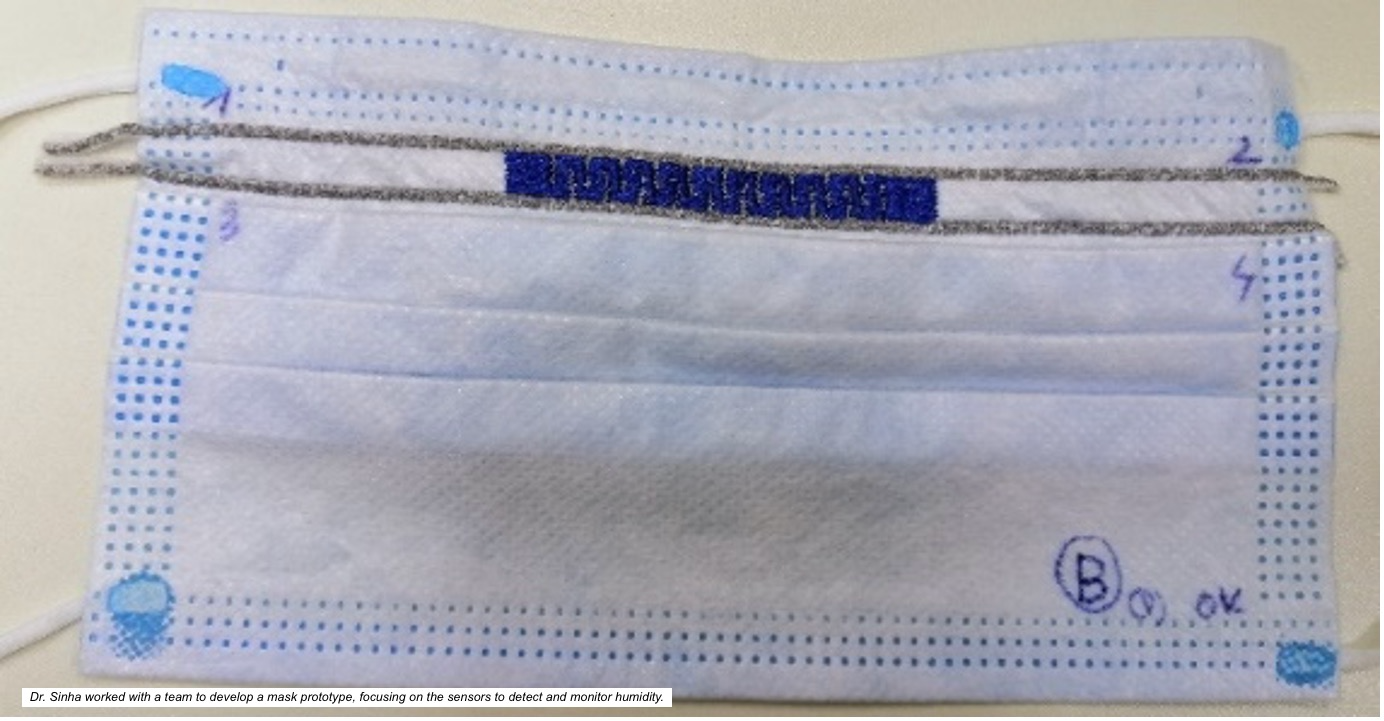Dr. Ankita Sinha in her lab at the University of Novi Sad
"A scientist who brings solutions to real-life problems"
Ankita Sinha was looking for research positions in analytical chemistry, and in January 2021, she moved to Serbia to work as a postdoctoral researcher at the Faculty of Technical Sciences at the University of Novi Sad. A native of India, she was keen to go abroad for education and job opportunities. After earning her bachelor’s, master’s and doctoral degrees in chemistry at Jiwaji University in Gwalior in central India, she relocated to China and then to Canada to pursue postdoctoral opportunities, prior to taking on her current position in Serbia. In high school, Sinha was always drawn to organic chemistry. She not only excelled in the subject, but liked that it could be used to solve real-world problems. She now specializes in analytical chemistry which, according to Sinha, has become a more popular field in the last 50 years as a response to increasing environmental challenges, climate change and threats to the ecosystem. She is an expert in examining materials by separating them into their components, identifying them and measuring how much there is of each one. “Analytical chemistry is very much an application-based branch of chemistry.”
Little did Sinha know that she would later use her expertise to address the COVID-19 pandemic.

Sinha works with Dr. Goran Stojanovic and the Horizon 2020 European Union-funded project STRENTEX which focuses on emerging technologies and innovative research in stretchable and textile electronics. The project is aimed at developing flexible and wearable textile-based sensors to address emerging real-world problems in healthcare. Sinha and her team applied their research to the development of an embroidered face mask which uses sensors to measure lung capacity as a preliminary indication of COVID-19. They intend to experiment with the mask with other healthcare applications such as the investigation of bacteria and viruses surrounding the nose area. She believes that the applications hold great promise for the early detection of pulmonary / lung-related diseases, which can help one to take the required course of medical treatment.
What Sinha loves most about her job is the fact that she “can always improve my skills as a chemist. I can study the environment and problems in society to bring practical solutions to them by sensing and detecting different contaminants and analytes.”
Sinha recognizes the gender disparity in STEM fields, but believes the situation is changing and improving. “On my current team we are seven people – four women and three men. I think in India, specifically, young women and girls are motivated to work in general because they want to be financially independent. They are pursuing STEM careers in India and abroad. It’s just getting better.”

